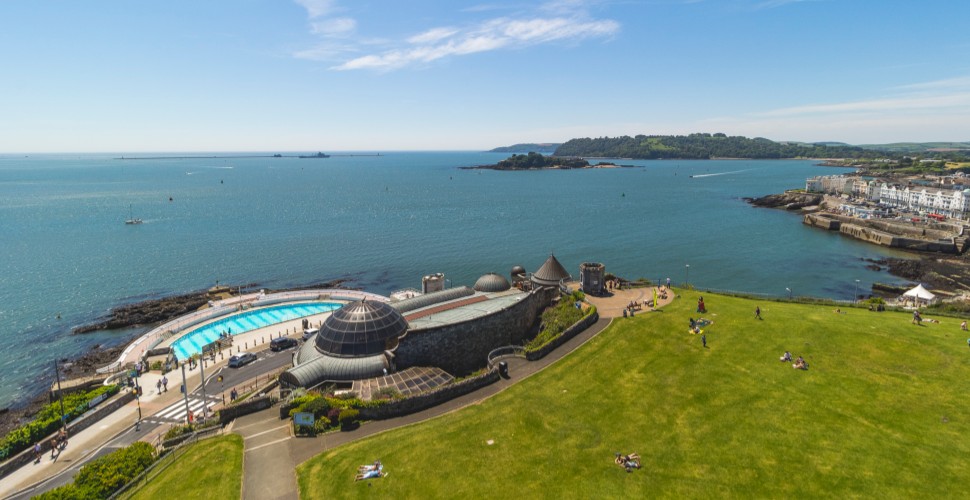New funding means the Marine Business Technology Centre (MBTC) in Plymouth will operate for another 12 months, providing valuable innovation support to businesses in the county.
Based in Plymouth’s Oceansgate development, the MBTC has supported nearly 400 businesses since it was established in 2018.
Thanks to more than £735,000 from the European Regional Development Fund, backed by the Department of Levelling Up, Housing and Communities (DLUHC), the service will continue for another year, offering support to businesses developing cutting edge marine technologies in areas including marine autonomy and clean propulsion.
The MBTC is a partnership led by Plymouth City Council with the Marine Biological Association (MBA), Plymouth Marine Laboratory (PML), the University of Plymouth and the University of Exeter
Council Leader Richard Bingley said: “A key focus for us is ensuring that there’s a pipeline of high value jobs in Plymouth, to benefit our residents and to boost the local economy. The MBTC has a role to play in supporting the marine industry locally, putting Britain’s Ocean City at the forefront of marine and maritime innovation. In turn this helps to create new jobs and ensures the ongoing success of our local businesses, so it’s fantastic to receive an extension to the funding.”
The MBTC was created following a decade of development between the region’s world-leading research institutions and the Council and builds on the city’s 200 year legacy as a global centre of marine innovation. It’s now part of a valuable network of initiatives that are helping to position Plymouth as a global leader in the industry, including the Plymouth and South Devon Freeport, the Plymouth Sound National Marine Park and the South West’s Ocean Futures programme.
Since its creation, the centre has overseen the creation of Smart Sound Plymouth, an on-water proving area for designing, testing and developing cutting edge products and services which is home to Smart Sound Connect, the world’s first ocean-focussed 5G testbed.
Rob Watson, Director of the MBTC said: “It has been a pleasure to lead the MBTC initiative for the past four years and to see that our programme has been a success. Our partnership looks forward to working further with our cutting edge clients to provide real change in the marine environment and to further cement Plymouth and the wider South West region as a world-leading centre for marine innovation.”
Professor Kevin Jones from the University of Plymouth said: “The University of Plymouth is proud of the impact delivered by the MBTC in making the world-class capabilities of the partnership available to the region’s most innovative marine technology businesses. The university is excited to take this work forward; further elevating the region’s role as a global hub of marine and maritime innovation and the place to go for leading knowledge and talent.”
Professor Chris Smith, Director of the Centre for Future Clean Mobility at the University of Exeter said: “The MBTC has been an essential programme, forming a critical part of the SW region’s landscape for marine business support. Through this programme we have been working with innovative businesses enabling them to benefit from the knowledge, expertise and facilities within Exeter helping them to introduce new products and services, and thus accelerating their plans for growth.”
Professor Willie Wilson, Director of the MBA said: “I am personally excited about the MBTC, it is a grant that will allow a wide range of business access to cutting edge research facilities and expertise at the Marine Biological Association. Working together will create a synergy that will allow us to think big, be more competitive and become a powerhouse of the UK maritime industry here in the Southwest.”
Professor Icarus Allen, Chief Executive of PML, said: “As Plymouth continues to cement itself as a world-leading hub for cutting-edge marine technologies, the ongoing support for research, innovation and production provided by the MBTC is of huge value to both the sector and the city itself. Plymouth Marine Laboratory is a key delivery partner of the MBTC and works closely with the growing network of collaborative partners in key areas such as advanced marine autonomy and environmental monitoring, including through Smart Sound Plymouth. We are very pleased that the extension has been given and look forward to continued collaboration in the year ahead.”
